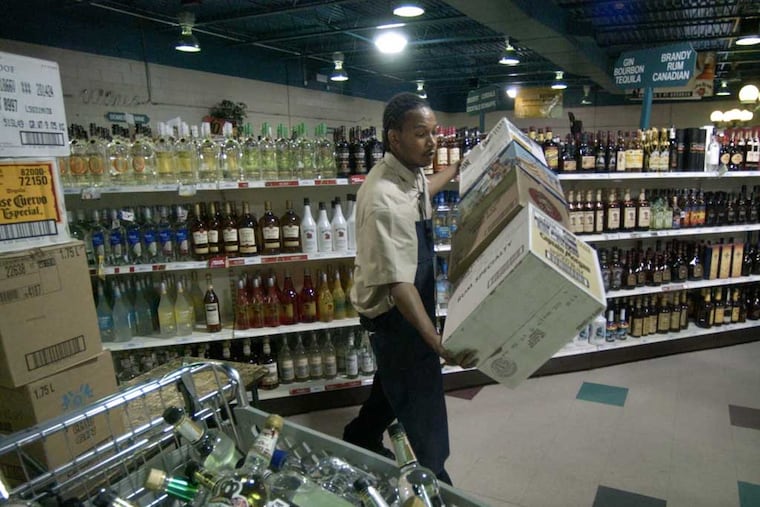Pa. House again passes plan to sell off state stores
HARRISBURG - The Republican-controlled House, for the second time in as many years, passed a bill Thursday that would privatize the often-maligned state wine and liquor stores.

HARRISBURG - The Republican-controlled House, for the second time in as many years, passed a bill Thursday that would privatize the often-maligned state wine and liquor stores.
The vote, 114-87, came after five hours of debate and was largely along partisan lines.
Republicans who championed the measure said they were carrying out the public's will, as opinion polls consistently show overwhelming support for dismantling the state's monopoly over liquor sales.
They also argued that a wholesale and retail sell-off would reap the state $1 billion, with some of that landing in the forthcoming fiscal year, when the state faces a budget deficit of more than $2 billion.
"What we're doing with the bill is moving Pennsylvania forward in a way the public wants, and doing it in a responsible way," said Rep. Chris Ross (R., Chester), chairman of the House Liquor Control Committee.
But Democrats and a handful of Republicans who opposed the bill were just as vocal, arguing that the plan makes little financial sense and will leave thousands of State Store workers out of a job.
Despite passing a major legislative hurdle Thursday, the bill's future appears in jeopardy. The Senate has been far less enthusiastic about such an aggressive approach to changing liquor laws.
And Gov. Wolf has left no doubt. If the bill reaches his desk, he said this week, he will veto it.
The proposal that passed is championed by House Speaker Mike Turzai (R., Allegheny), and is similar to one that passed out of the chamber in the last legislative session.
Turzai on Thursday said he believes the governor and others can be convinced of the bill's merits and was clear that he does not intend to back away from a full and aggressive selling off of the liquor system.
"That's where we are," Turzai said.
The bill calls for selling the retail and wholesale operations of the Liquor Control Board and creating 1,200 licenses for stores to sell wine and liquor. Beer distributors would have the first chance to buy the licenses.
Grocery stores would be permitted to sell only wine. Stores that now have licenses to sell up to two six-packs of beer would retain those licenses.
As in the previous proposal, some of the state-run wine and spirits stores would continue to operate for a time, most of them in rural areas where legislators fear there will be little interest in buying a license. But even those stores would have to eventually close if the number of private outlets in any given county was twice that of state-run stores.
The cost of the licenses would vary depending on the population in the county in which they were being sold.
Rep. Warren Kampf (R., Chester) said, despite claims from Democrats that privatization will hurt the state's finances and jeopardize public health by leading to increased drinking, that he has faith in the private sector.
"Under the same logic, the chemical industry should be run by the state," Kampf said. "The pharmacies should be run by the state. The tobacco industry should be run by the state. The car industry should be run by the state. What country are we in?"
Other Republicans said the LCB, which kicks tens of millions of dollars into state coffers now, is becoming increasingly less profitable.
Others have argued that is in part because Republican legislators, in their zeal to sell it off, have blocked other pieces of legislation that would help the LCB make more money, including allowing more State Stores to operate on Sundays.
So-called modernization bills have been mired in legislative limbo since the debate over privatization has taken center stage.
Rep. Curtis Thomas (D., Phila.) said, "The only thing the system is in need of is modernization - not destruction."